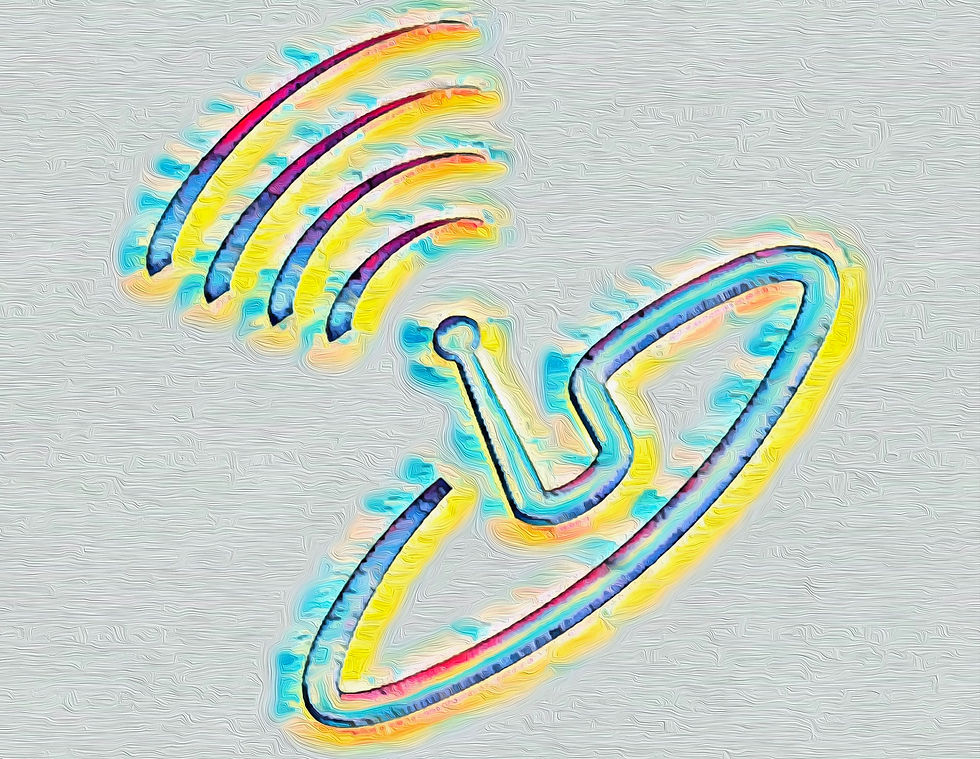Keys to Noticing Meaning.
- Mike Haines

- Apr 29, 2023
- 3 min read
Updated: Jan 7, 2025
GRACE PRINCIPLE THREE: How has our past influenced what we see, hear, feel?
KEY PRACTICE: using story language.

Our understanding and interpretation of what happens in our world, and our response to it, is shaped by our experiences, the teachings of our parents, our school education, religious beliefs and teachings, what we read, what we hear online or on TV, the culture that surrounds us... so many subtle and not so subtle influences.
For example, if I grew up in a homophobic environment (parental influence, cultural influence) and another man put his hand on my leg in a social situation, I might physically recoil, because that belief/meaning has been embedded in my neurology. The adrenaline response in my body means this person is a danger to me or unsafe. And, alternatively, if I don't react, or if I actually like it, what does that mean about me?!!
The conditioning of our neurology by learned story or meaning can cause us to react in a situation before our rational mind comes online.
The key to the practice of noticing meaning is to encourage inner awareness of our uncomfortable response to something we hear or see or feel. Why did my body, my emotions, react like that? What meaning or story did I attach to it?
It does not mean that my story or belief is wrong or bad. The practice is simply to notice it, to be curious about it, and perhaps gain some understanding of where it came from.
We used to call this principle of Grace, Meaninglessness. But to ask people to experience everything that happens for the next few minutes, hours, whatever, as meaningless is essentially an impossible ask. Most importantly because the meanings/stories we have absorbed are often "unconscious", stored away, and ready to react whether we want to react or not.
We also tried using the term "noticing story" for this principle. But the meaning we give stories lies at a deeper level.
So how do we encourage our mind and neurology to begin to notice and explore meaning? We have found that the practice of verbally using story language when describing an experience or our reaction to something is helpful.
In the example of the man touching my leg at the beginning of this article, the practice of story language might be to say something along these lines: "When that man touched my leg, the story I told myself was that he touched me without consent. However I wouldn't have reacted that way to a woman's touch." Or, "I have a story that homosexuality is wrong." Or, "A story I carry is that to be properly masculine in our culture means you can't have other men touch you."
In a holding situation noticing meaning might be to say something like, "When you caressed my face the story I told myself is that you are sexually attracted to me."
Or simply when someone turns away from you when you weren't expecting it: "The story I told myself is that I'm boring, or you don't like me."
And the follow-up practice would then be curiousity about where the story(s) come from. Does our culture connect loving facial touch with intimacy and sex? Is that true? What if I made it meaningless and just told myself that the touch feels good? Where and how did I learn that someone turning away from me meant some kind of rejection? And on it goes.
The meaning we give things, our stories, and the corresponding discomfort, are signposts or alarms for our protector parts to go into action. So we pull away, or we go numb, or we accuse angrily, or we attack, or we go silent and disconnect, or we shrink in shame. Again, it is not to make the stories we carry as bad or wrong, nor is it to make our discomfort and the response of our protector parts wrong. They are simply trying to keep us safe.
Noticing meaning is to offer grace to our neurology and to our protector parts for the meanings they are programmed with. Noticing meaning is to have compassion for our vulnerabilities, and the vulnerabilities of others. Noticing meaning is an awareness that what we think or feel about our experiences is not necessarily accurate. Noticing meaning is a practice of staying open and curious. Noticing meaning gives us access to ascribing less meaning to things and increased access to our neutral, graceful observer.



Comments